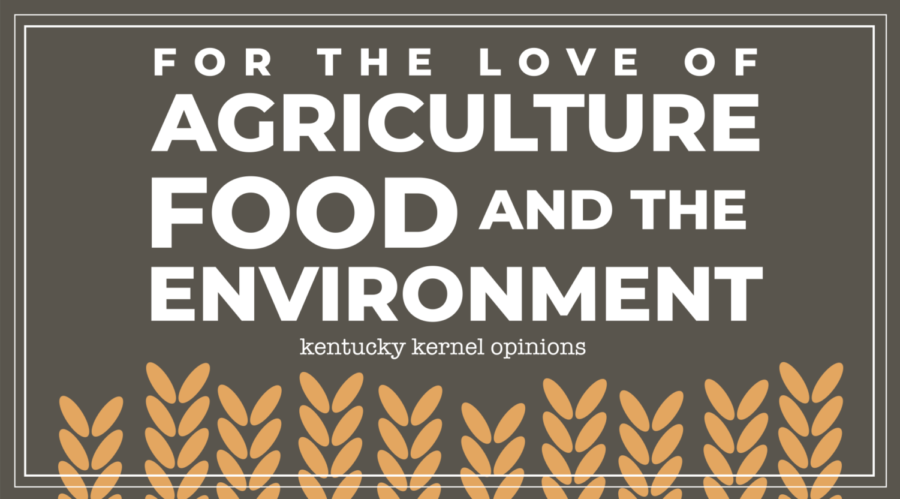Re-imagining broken food systems in a post-COVID world
April 24, 2020
For the love of agriculture, food, and the environment is a monthly column by UK’s The Food Connection intern, Kelly Walker.
Among the many conflicting and emotional opinions related to the state of the nation and the world floating around on social media, news outlets, and everyday conversations, the voices of the hopeful shine through.
You may have noticed them in your Facebook feed or on Instagram stories. You may have seen the words of people like Sonya Renee Taylor, Brené Brown, or Julio Vincent Gambuto (if you don’t recognize his name, see if you recognize his widely circulated article). I know I have. These are the voices that speak to my heart the most as they acknowledge the awful realities of this virus, look to hope, and call for mindfulness as we move forward.
As many have already vocalized, there are so many facets of our society that were not “normal” before the pandemic, like family dynamics, healthcare systems, and race and class disparities.
Another major pre-pandemic dysfunction is our nation’s food system. The sheer scale of food production accomplished in the U.S. relies heavily on industrial agricultural practices that offer no consideration for the future. Tilling and intensive agriculture are depleting our soil nutrients, agricultural runoff is toppling the balance of our aquatic ecosystems and human health, and the capitalist move to replace small farms with slaughterhouses is dangerously blurring the lines of ethics and warping the value of life.
Before coronavirus (B.C. if you like), my plan for this article was to explore animal agriculture, and as a dark and strange kismet would have it, struggling slaughterhouses and the meat industry are making headlines. According to this New York Times article, beef, chicken, and pork processing plants are slowing and even shutting down because of the pandemic.
This is alarming news for hungry Americans and farmers dependent on selling their animals because, “shutting down one plant, even for a few weeks, is like closing an airport hub. It backs up hog and beef production across the country, crushes prices paid to farmers and eventually leads to months of meat shortages.” On top of this, farmers are making headlines accompanied with troublesome photos of rotting fields of produce and spoiled milk down the farms’ drain. A major disconnect in the food chain is allowing for massive amounts of food waste on the farm and empty shelves at the grocery.
Might there be a better way to structure our food system? The state of our food system seems akin to the consequences of putting all your eggs in one basket (pun intended).
The analogy that comes to mind is the homogenization of urban trees. If you plant the same two or three species of trees in a city, you run the risk of losing half the population of trees if a single threat targets a particular species, like a disease, pest, or even a virus.
The most infamous example of this is the emerald ash borer and ash trees. If the ash borer makes its appearance in a region where every other tree is an ash tree, half of the area’s trees stand barren and lifeless. Alternatively, if the ash borer invades a species rich region full of maples, oaks, magnolias, tulip poplars, and sourwoods in addition to ash trees, only a few trees will fall.
Efficiency and high production levels are absolutely benefits of industrialized animal agriculture; however, it seems that packing workers in slaughterhouses provided a breeding ground for the coronavirus. So, why not diversify the production and purchasing of our meat? The fall of these slaughterhouses could be the perfect blank slate for America to restructure the food system to ensure better stability in the future.
Support your local farmer – the maples, oaks, magnolias, tulip poplars, and sourwoods of our food system. And maybe, if we’re intentional enough, we can reset the boundaries of ethics and our value of animal life as we shift our support from factory farms that treat animals as a commodity to the struggling, old fashioned farmer.
































































































































































